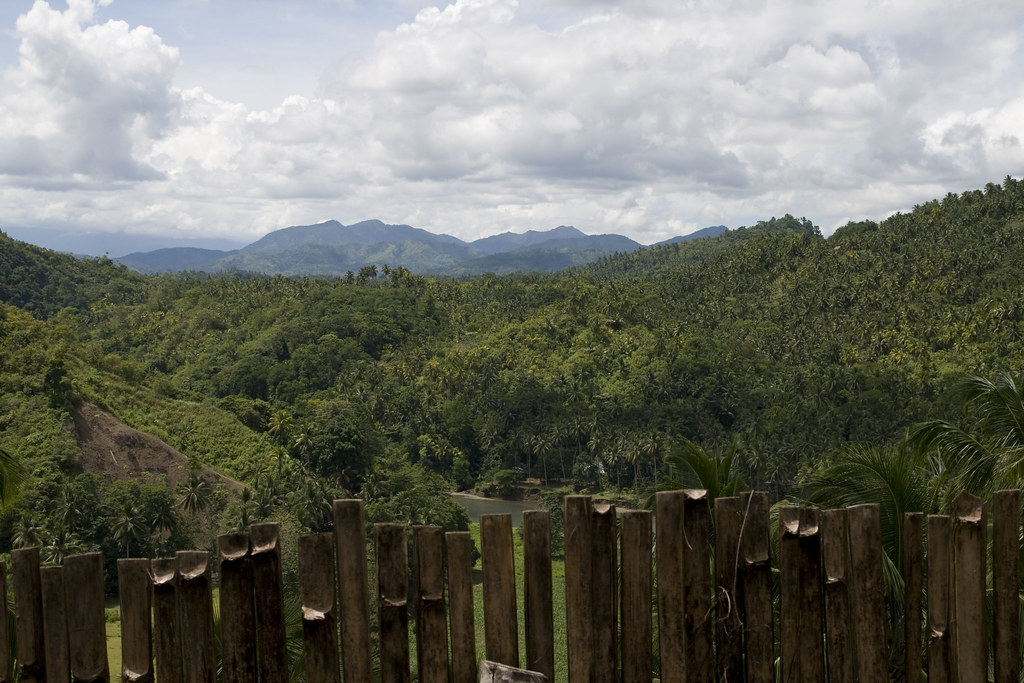*[Slightly under-edited sneak preview of a much larger project]*
 Barangay Miatan is located deep in the hills outside of Katipunan, Zamboanga del Norte. The entrance to the barangay can be reached only by foot or the most rugged of motor vehicles, a long trip along jaw-rattling dirt and gravel roads lined with paddies where farmers transplant rice by hand and plow with the help of caribous.
Barangay Miatan is located deep in the hills outside of Katipunan, Zamboanga del Norte. The entrance to the barangay can be reached only by foot or the most rugged of motor vehicles, a long trip along jaw-rattling dirt and gravel roads lined with paddies where farmers transplant rice by hand and plow with the help of caribous. Reaching the center of the community is even more difficult. A dilapidated pedestrian bridge is suspended over the Dicayo river. The only other option is straight through the river.
Reaching the center of the community is even more difficult. A dilapidated pedestrian bridge is suspended over the Dicayo river. The only other option is straight through the river.We came up in a decommissioned military jeep, and only just made it across. About a third of the way through, water started flooding in through the door, nearly reaching my seat and sending me scrambling to keep my camera and computer dry. Halfway across, the jeep stalled, and I thought for a minute we were going to have to swim, until the motor coughed back to life.
 Remote barangays like Miatan have suffered the brunt of human rights abuses from the government and military. During the Marcos regime, this small Subanon community of 240 households was home to a military detachment, whose abuses drove many to the hills or the city. Women were harassed, locals recall, and farmers treated like slaves.
Remote barangays like Miatan have suffered the brunt of human rights abuses from the government and military. During the Marcos regime, this small Subanon community of 240 households was home to a military detachment, whose abuses drove many to the hills or the city. Women were harassed, locals recall, and farmers treated like slaves.The situation improved somewhat after the fall of Marcos, when President Aquino made moves to demilitarize the countryside -- but the hills of Katipunan remained hotspots of insurgency and retaliatory military strikes.
In 2003, local peace consultations began, with the support of the Revolutionary Workers Party - Mindanao (RPMM), a Marxist rebel group. The RPMM promised to lay down their weapons if the government would take steps to meet the needs of impoverished barangays in Mindanao. A ceasefire was negotiated, and by all accounts the RPMM has held up their end of the deal.
In exchange, the government was supposed to fund development projects identified by communities themselves. After local consultations held in 2005, the central government promised 5 million pesos for infrastructure projects in each barangay involved in the peace process. The people of Miatan decided their first priority was to build a submarine bridge across the Dicayo. The bridge is a key element in their other plans as well, providing a farm-to-market road to expand economic opportunities, and making it possible to develop Morias falls as an eco-tourism destination.
 Three years later, the money still hasn't come. "The budget was suddenly gone," says Haydee Lodovece, head of a local people's organization. "Five million is five million. It's not easily forgotten."
Three years later, the money still hasn't come. "The budget was suddenly gone," says Haydee Lodovece, head of a local people's organization. "Five million is five million. It's not easily forgotten."People here have a way of laughing when telling these kinds of stories. But it's clear they're frustrated, especially as they find themselves squeezed tighter and tighter by the rising cost of food and fuel. By neglecting to meet their commitments in the peace process, the government is playing a dangerous game. Unrest in Mindanao has always been, fundamentally, about the central government's failure to deal fairly with the people. Every time this happens, peace workers say, it gets harder and harder to bring people together to talk about peace.
With less food on the table every day, says Ike de los Reyes, an RPMM leader, the poor are more inclined to return to armed struggle. Peace talks have not brought them enough to survive. "The people," he says. "Cannot lose anything but their sufferings and their hunger."

No comments:
Post a Comment